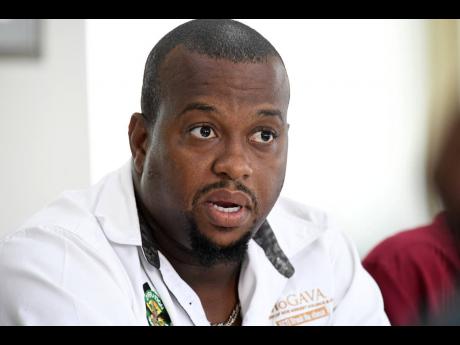Int'l Men's Day 2019 | Plagued by fatherlessness - Despite growing presence of men in homes, many of Ja’s ills still rooted in poor parenting
The Reverend Jayson Downer, president and founder of Men of God Against Violence and Abuse, believes that while sociologists note that there has been a significant increase in presence in the home, fatherlessness remains a concern in Jamaican society.
“Fatherlessness, certainly from my perspective, does not necessarily mean the absence of daddy in the home or that the child doesn’t know who daddy is. I’m talking about the quality [of the] relationship, and we need to change the narrative,” he told a Gleaner Men’s Forum last week Tuesday.
He found support in Dr Michael Coombs, chair of the National Association for the Family, who said that the majority of societal problems Jamaica is grappling with are rooted in poor fathering.
“In the majority of social and public issues that nations grapple with, such as crime and violence, drug abuse, unattached youth, there is a father factor that is predominant, even when they consider other factors – your economic status, whether you’re poor or rich,” Coombs said.
He referenced a 2012 Jamaica Constabulary Force survey that revealed that six out of every 10 prison inmates grew up without a father.
Further, a 2014 United Nations Children’s Fund-commissioned survey in various Jamaican state institutions found that 100 per cent of the children referred to the Child Development Agency – now the Child Protection and Family Services Agency – came from homes in which there were no father figures.
Coombs believes more research is needed on the prevalence and effects of father absenteeism in Jamaica with a view to tackling the issues head-on.
STRATEGIC ACTIVITIES
“Even though we might have a growing presence physically of men, when we look at certain groups that are creating challenges for our country, the father factor is blatant, and it must be addressed in a preventive way,” he said.
The National Association for the Family launched an initiative in 2015 targeting males 12 to 35 years with a vision of improving their knowledge of responsible manhood.
Among their major strategic activities are retreats, which have impacted just under 1,000 males to date, many of whom have documented positive feedback and changed views on fathering, marriage and family life, the organisation said.


